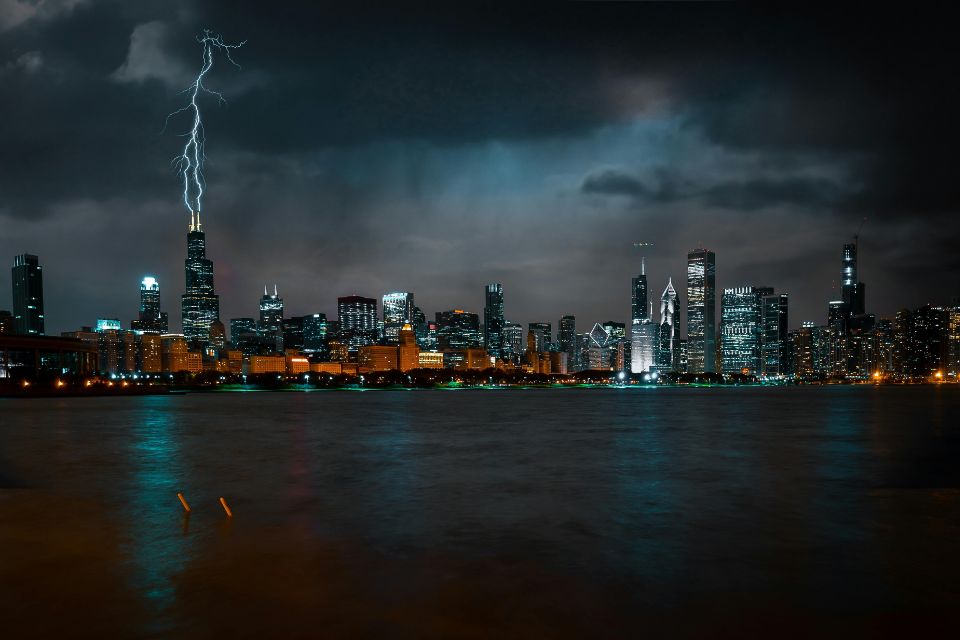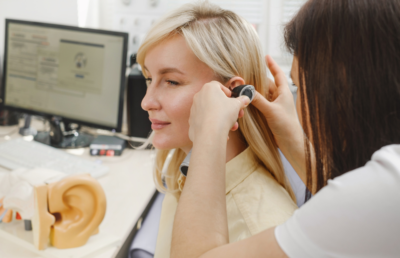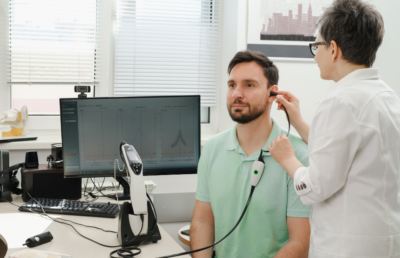Warmer temperatures have finally arrived in the midwest and with it comes an increased risk for extreme weather like severe thunderstorms and tornadoes. Many people rely on weather alerts that sound an alarm on the television, phone, or radio. But what does this mean for someone with hearing loss?
Fortunately, there are some solutions to help, designed specifically for individuals with hearing difficulties. Here’s everything you need to know to keep you and your loved ones safe in the event of an emergency weather scenario.
Use an All-Hazards or Weather-Alert Radio
While weather radios have auditory alert systems, many are available with visual or vibrating features to support deaf individuals or those with hearing difficulties.
Some of the adaptors that can be applied to standard all-hazard radios include colorized warning lights to indicate the level of alert (like a special weather statement versus a weather warning), strobe light alerts, and bed shaking features to ensure you wake up.
These radios can be programmed for state and county, ensuring you receive only the most relevant alerts. In some instances, you may be able to connect your receiver to your existing home security alerting system.
There are many brands that manufacture these radios and receivers. For more information on what to look for, you can visit the National Weather Service website, here.
Connect with Apps
If you wear hearing aids or use listening devices that are connected to your cell phone, apps like the NOAA weather radar app can be set to stream verbal alerts directly to your hearing aids.
Alternatively, ensure that your phone is set up to receive text messages or notifications when severe weather is imminent or approaching.
Prepare an Emergency Kit
Aside from the standard supply of drinking water, non-perishable food, and a first aid kit, individuals with hearing loss should include additional items in their emergency kit.
The emergency kit should include:
- Copies of important documents like insurance cards, photo IDs, and contact details of your family/emergency network
- Flashlights with extra batteries to aid navigation and help you lip-read if necessary
- A whistle or a bell should you need to get someone’s attention
- Pen and paper in case it is hard to hear and you need to communicate with a first responder
- Extra hearing aid batteries
- Make a list of medications, allergies, chronic conditions, and blood type. This list can be given to a first responder if you are having trouble hearing or communicating
- Alternate communication devices. If you wear hearing aids and they fail or are lost, Personal Sound Amplification Devices can be useful in an emergency
Be sure to store your emergency kits in a waterproof container to keep the contents safe.
Establish an Emergency Network
If possible, choose two people in your life to be your emergency network. Ensure these individuals have spare keys to your home, know where you keep your emergency supplies, and understand your hearing loss and the devices that you use.
Develop an emergency plan so that you all understand how you will communicate with one another and how often you will check in. This plan should include the next steps for instances where contact cannot be made.
Prepare for an Emergency with Chicago Hearing Services
At Chicago Hearing Services, we pride ourselves on supporting you in every part of your hearing journey. This includes emergency preparedness.
If you need advice on how to develop a safety plan that adequately addresses your hearing needs or want advice on alerting devices, or require backup hearing devices and batteries, we can help you.
Contact us today and let’s work together to keep you safe in an emergency.





